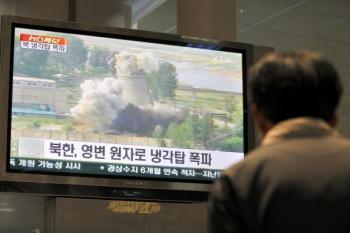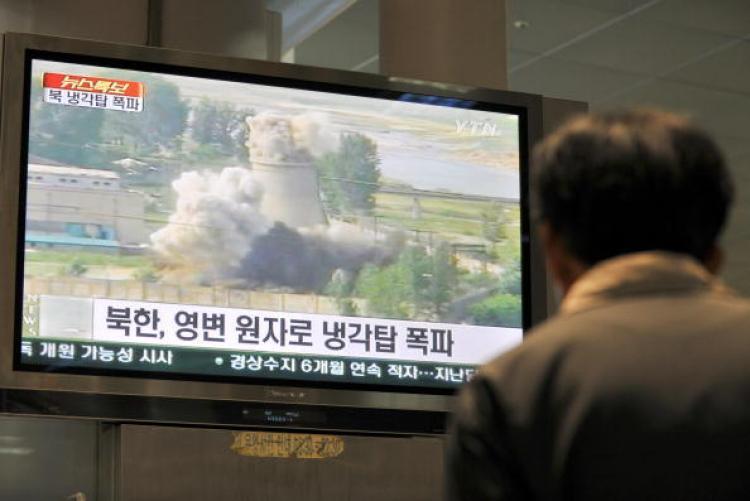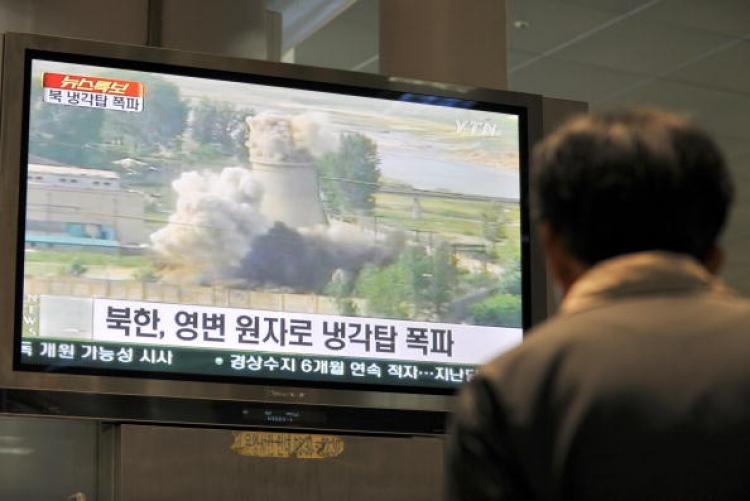Hill, who is the Assistant Secretary of the Bureau of East Asian and Pacific Affairs, along with South Korean counterpart Kim Sook, met to discuss the status of North Korea’s denuclearization Friday morning in Manhattan.
Hill informed reporters, “As you know in the Six-Party process we’ve often suffered delays. We’re in another delay now, but I just want to stress that we are ready to de-list [North Korea from the State Department’s list of state sponsors of terrorism] as soon as we get a verification protocol that’s consistent with international standards. So let’s be patient here and see with what the DPRK [North Korea] comes back with.”
Including North Korea on the United States’ list of state sponsors of terrorism has been a major sore spot for the Kim Jung II Regime, which wants to be de-listed as a form of reciprocation for its efforts to disarm its nuclear program.
This cannot be done, however, until North Korea responds to the terms of the verification protocol.
“These are serious matters. It’s got to be real verification. We’re trying to verify the amount of plutonium that they are declaring, and in order to verify the amount of plutonium, there are certain things you have to do, and so I think those things are pretty internationally understood,” Hill stated after his meeting.
There are multiple phases of the Six-Party Talks. The first phase was completed in July 2007.
What has North Korea done so far?
North Korea has shut down and sealed core nuclear facilities and once again invited the International Atomic Energy Agency (IAEA) to conduct monitoring and verification activities, according to Hill.
Under the Second Phase, Hill told the senate committee on Armed Services that the DPRK has taken significant steps to disable three core Yongbyon nuclear facilities. North Korea’s most recent step towards denuclearization came on June 27, when it destroyed one of its cooling facilities in Yongbyon before the international media.
Hill confirmed, “As of today, the DPRK has completed eight out of 11 agreed disablement tasks, and has discharged more than half of the 8,000 spent fuel rods from the 5-MW(e) reactor.”
Hill told the senate committee that the Six-Party Talks are currently completing the Second Phase of tasks and moving into the Third Phase of implementing the September 2005 Joint Statement.
The Joint Statement lays out the goals of the Six-Party Talks, most importantly the DPRK’s commitment to abandon all nuclear weapons and existing nuclear programs, and return to the Treaty on the Non-Proliferation of Nuclear Weapons and to IAEA safeguards.
Hill describes the Joint Statement as a broad vision that would offer North Korean people a better future and also provide a foundation for regional peace and stability, based on recognized norms of international relations, including human rights.




